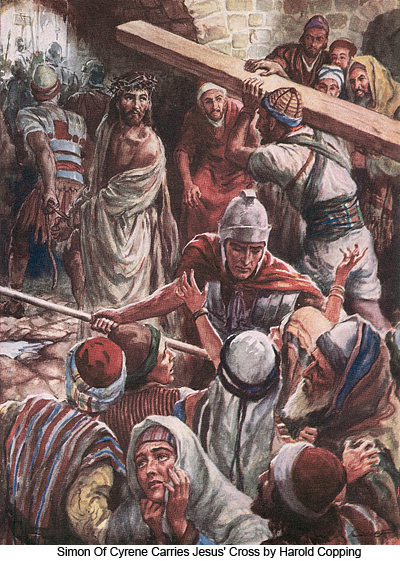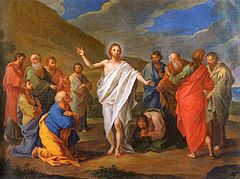Do The Gospels Contradict About Who Carried Jesus’ Cross?

The gospels seem to contradict about who carried Jesus’ cross, which critics seize upon.
Seeming contradiction:
Did Jesus bear his own cross?
(a) Yes (John 19:17)
(b) No (Matthew 27:31-32)
THE PROBLEM
Who carried the crossbeam or pole?
· Matthew 27:32 – Simon
Mark 15:21 – Simon
· Luke 23:26 – Simon
· John 19:17 – Jesus
THE EXPLANATION
These divergent details, rather than being contradictions, actually are complimentary, and give powerful evidence the gospel writers are telling the truth, rather than copying from a single fictional account, or writing new fiction, in which the details are harmonized, or smoothed out.








